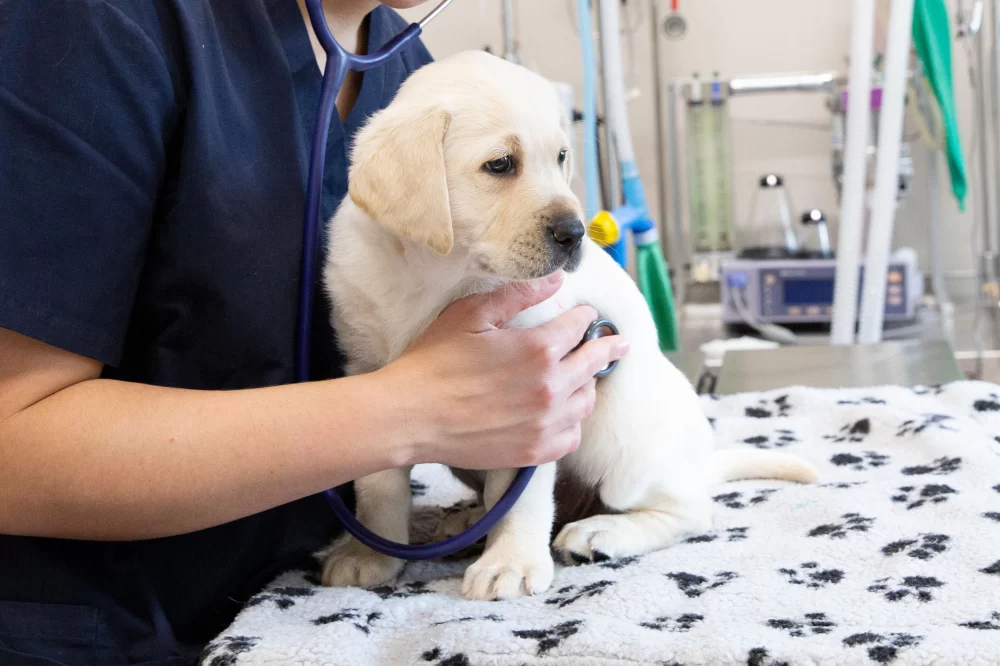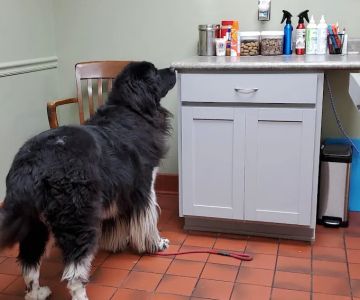How to Take Care of a Puppy’s Health: Essential Tips for New Dog Owners
As a new dog owner, one of the first things I learned is that taking care of a puppy’s health is a full-time commitment. A puppy, with all its playful energy and innocence, needs more than just love and attention. Ensuring that your puppy stays healthy is a mixture of the right nutrition, regular check-ups, training, and a safe environment. Whether you're a first-time puppy parent or a seasoned pet owner, these essential health care tips will guide you in keeping your furry friend happy and thriving. Through my personal experience, I’ll walk you through the key aspects of maintaining a healthy puppy, from vaccinations to daily routines.
1. Proper Nutrition: Fueling Your Puppy for Growth and Development
The first and foremost step in caring for a puppy’s health is providing proper nutrition. During the first year, a puppy’s body is rapidly growing and developing. This means that what you feed them plays a vital role in shaping their future health. When I first brought my puppy home, I was amazed at how important nutrition was for their overall well-being.
1.1. Choose a High-Quality Puppy Food
Choosing the right puppy food can feel overwhelming, but it’s crucial to find one that is specifically formulated for their developmental needs. High-quality puppy food typically contains the right balance of proteins, fats, vitamins, and minerals. Look for foods that have meat as the first ingredient, as it provides essential amino acids that puppies need for muscle and bone growth. I remember speaking with my vet about which brands to trust, and I was reassured by choosing foods that passed AAFCO (Association of American Feed Control Officials) guidelines.
1.2. Avoid Human Food
It might be tempting to share your meals with your new best friend, but human food is not safe for puppies. Some ingredients like chocolate, grapes, and onions can be harmful, and even small quantities can lead to toxicity. I’ve learned the hard way to stick to puppy-approved treats and meals, as this ensures their digestive system stays in top shape.
2. Regular Vet Check-Ups: Keeping Your Puppy’s Health in Check
Regular visits to the veterinarian are crucial for monitoring your puppy’s health. From the moment I got my puppy, I made sure to establish a routine of vet check-ups. These visits aren’t just for vaccinations—they also help catch potential health issues before they become serious problems. Even if your puppy seems perfectly healthy, a vet check-up ensures everything is progressing as it should.
2.1. Vaccinations
Vaccinations are a critical part of your puppy’s early health care. My vet explained that vaccines protect puppies from dangerous diseases like parvovirus, distemper, and rabies. Most puppies will receive their first round of vaccinations between six and eight weeks old, with booster shots scheduled for the following months. Keeping up with this vaccination schedule is key to preventing preventable diseases.
2.2. Routine Health Screenings
Aside from vaccinations, regular screenings for things like parasites, dental issues, and overall development are just as important. My vet did routine fecal exams for parasites and checked my puppy’s heart and lungs at each visit. This helps catch any issues early, ensuring that my puppy grows up strong and healthy.
3. Dental Care: Keeping Your Puppy’s Teeth Clean and Healthy
Dental health is one aspect of a puppy’s well-being that’s often overlooked. But, maintaining good oral hygiene from the beginning can save you a lot of trouble down the road. I was surprised to learn how early dental problems could start, so I made it a priority to keep my puppy’s teeth clean.
3.1. Start Brushing Early
Brushing your puppy’s teeth early on helps prevent plaque buildup and can avoid future dental diseases. Start with gentle puppy-specific toothpaste and a soft brush to introduce them to the process. I remember how my puppy was initially hesitant, but with patience and consistency, they grew accustomed to the routine, and now they happily sit through their dental cleaning sessions.
3.2. Dental Chews and Toys
In addition to brushing, dental chews and toys can also help promote healthy teeth and gums. My puppy loved their dental chews, and they helped with keeping their teeth clean while satisfying their need to chew. Just be sure to select toys that are safe and appropriate for your puppy’s size and breed.
4. Exercise and Play: Keeping Your Puppy Active and Fit
Exercise is another important aspect of your puppy’s health. I quickly learned that puppies have a lot of energy, and regular exercise is essential to help them grow up strong and prevent behavior problems. While exercise is important, it’s also necessary to tailor it to your puppy’s age and breed.
4.1. Daily Walks
Daily walks are an excellent way to help your puppy burn off energy while also exposing them to new environments and experiences. I made it a habit to take my puppy on two walks a day, which provided great mental stimulation and physical exercise. It also helped with socialization, which is crucial for puppies to become well-adjusted adult dogs.
4.2. Interactive Playtime
In addition to walks, interactive playtime is another way to keep your puppy physically and mentally engaged. Toys like fetch balls, tug ropes, and puzzle toys are great for stimulating your puppy’s mind and giving them the exercise they need. I noticed how much happier and healthier my puppy was after a few rounds of tug-of-war or a game of fetch.
5. Socialization: Helping Your Puppy Become Comfortable Around People and Other Animals
Socializing your puppy is vital to their long-term health and behavior. Early exposure to different people, animals, and environments will help your puppy develop confidence and reduce the likelihood of behavioral problems. My puppy was initially a bit shy around new dogs, so I made sure to arrange puppy playdates and introduce them to other pets in a controlled environment.
5.1. Puppy Classes
Puppy classes are an excellent way to expose your puppy to other dogs in a controlled setting. I enrolled my puppy in a beginner obedience class, which was not only a fun bonding experience but also taught my puppy important social skills. They learned how to interact with other dogs and how to listen to commands, setting the foundation for a well-behaved dog.
5.2. Controlled Exposure to Different Environments
Another important aspect of socialization is exposing your puppy to various environments and experiences. From car rides to trips to the pet store, these experiences help your puppy become well-rounded and comfortable in different situations. It’s essential to ensure that these experiences are positive so that your puppy develops a healthy attitude toward the world around them.
6. Grooming: Keeping Your Puppy Clean and Comfortable
Proper grooming is essential for your puppy’s health and comfort. Regular brushing, bathing, and nail trimming help maintain their coat and prevent skin problems. I made it a priority to start grooming my puppy early on, which helped them get used to the process and made it easier as they grew older.
6.1. Regular Brushing
Depending on your puppy’s breed, you may need to brush their coat several times a week to prevent mats and tangles. Even short-haired puppies can benefit from regular brushing to keep their coat shiny and healthy. I found that brushing not only helped my puppy’s coat but also strengthened our bond.
6.2. Nail Trimming
Trimming your puppy’s nails regularly is essential to prevent overgrowth and discomfort. Start by gently handling their paws to get them accustomed to the process. Over time, my puppy grew used to having their nails trimmed, making it a simple and painless task.












